‘Until Black women are seen as beautiful we won’t get the beauty counter we deserve’
Like many Black women, Helen Bazuaye has faced a lifetime of hair discrimination, but there is finally a new guard trying to sweep through change. Here she talks to Jamelia Donaldson, founder of TreasureTress, about revolutionising a beauty game that is worth millions and putting Black founders in control
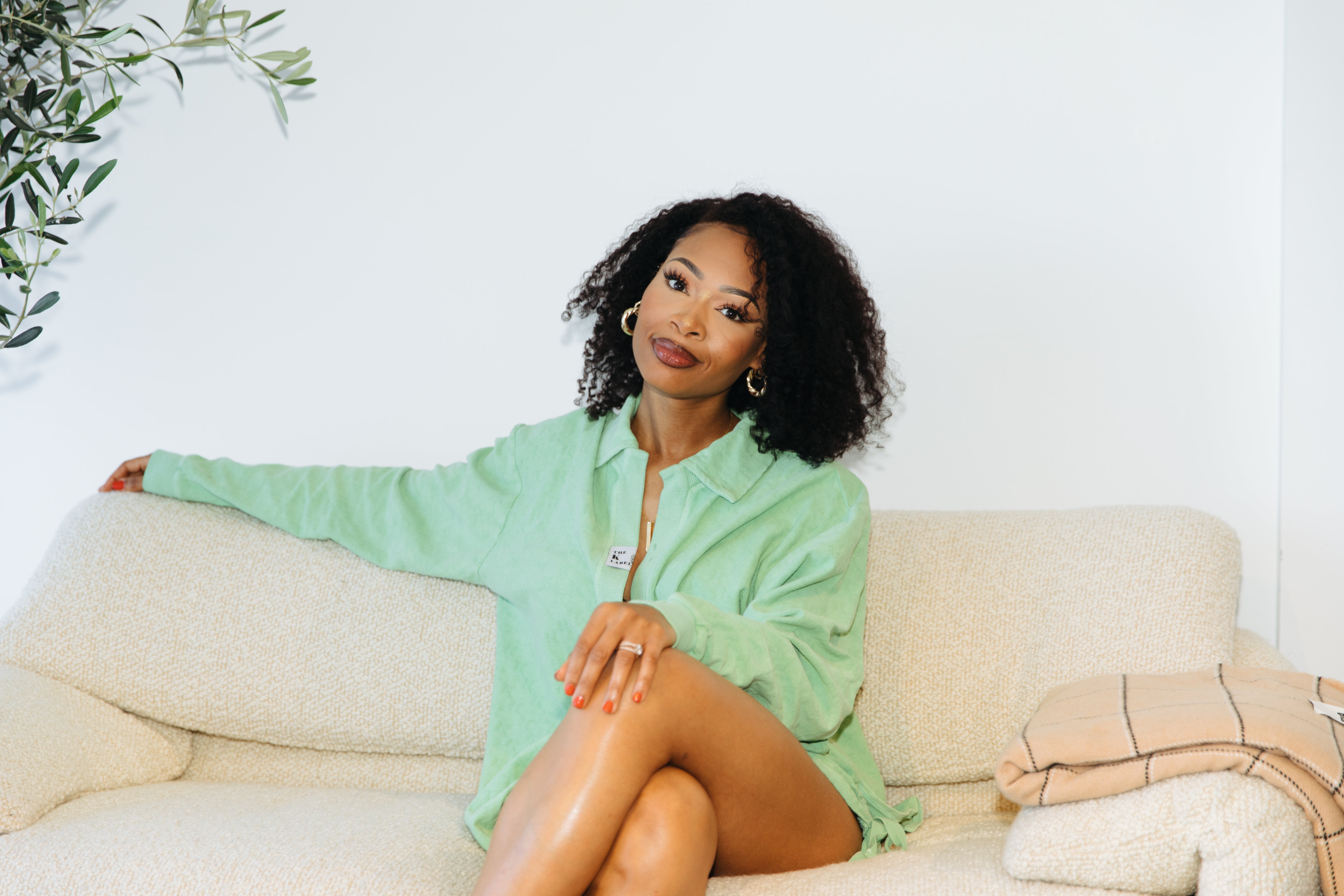
It was my first day at my first-ever Saturday job. I was going to sell lighting at BHS, the long-gone high-street retailer. My hair was braided in shoulder-length single plaits. They’d taken hours, cost a fortune and made me look so grown-up – I LOVED them! I stood in my uniform – a blue pinafore and paisley shirt with wings for collars – thinking that my hair was the one thing about me that looked good. The supervisor running my induction thought differently. My hair, she told me, was a mess. It was a disgrace to the uniform. Was there nothing, she wondered, that I could do about it? She said it all very calmly, like passing a comment on the weather... no emotional outburst or obvious bad behaviour for me to grab onto and feel assured that I had been wronged. Instead, a 15-year-old, adult-pleasing me was struck mute as she sent me off to the shop floor. I no longer felt so good about the way I looked.
Most Black women I know will have a similar tale, and it’s why there was such an outpouring of similar stories after the recent Peckham hair shop incident that laid bare some harsh truths about Black women’s identity and the daily interactions connected to it. The sight of the owner of Peckham Hair and Cosmetics on Rye Lane with his hands wrapped around a Black woman’s neck after she was accused of shoplifting having been refused a refund went viral. It sparked a passionate wider discussion among influencers, social commentators and friendship groups about how Black women are treated as consumers.
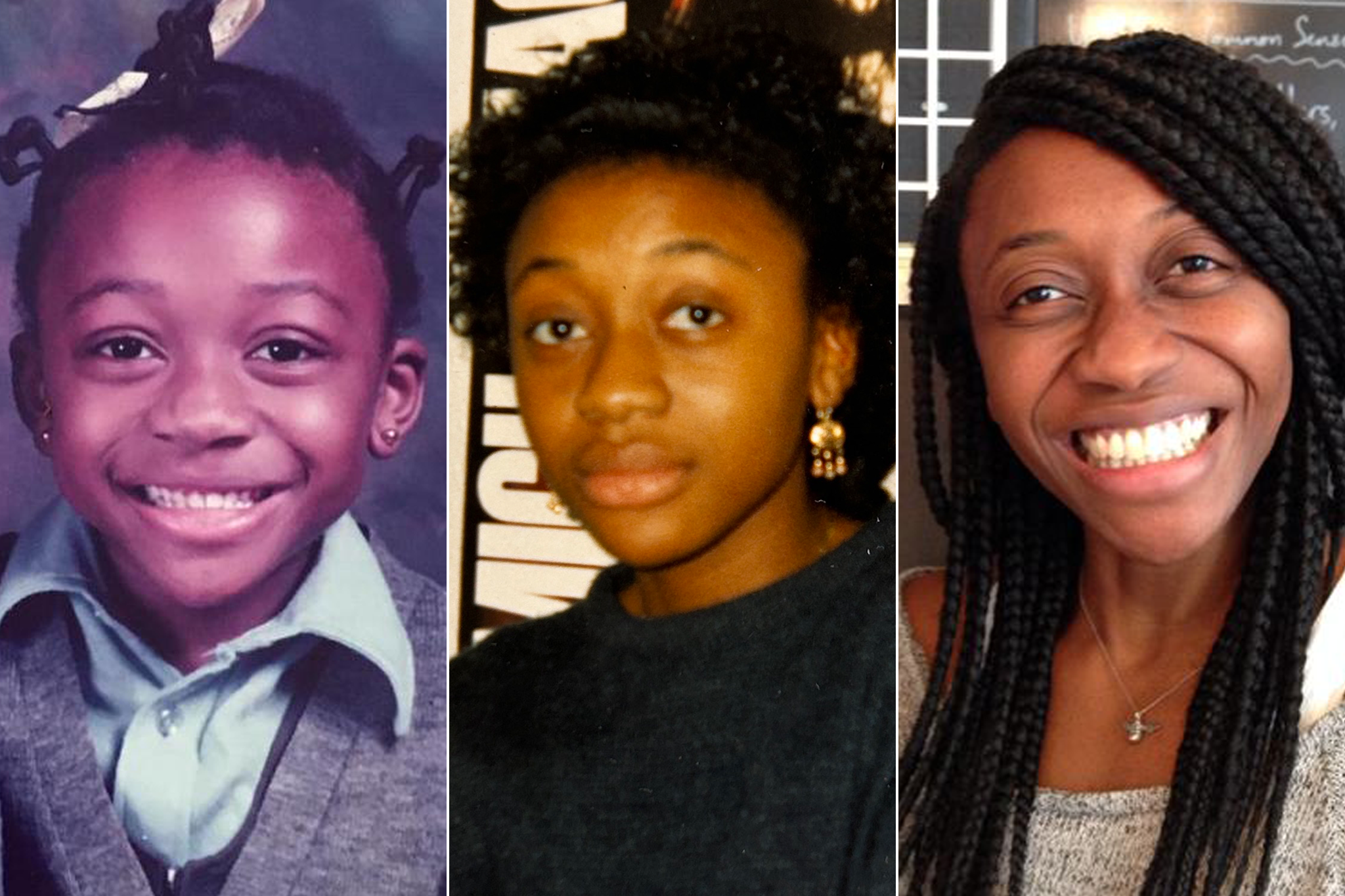
Fuelled by racial bias that stereotypically criminalises Black identity, the simple act of buying the right shampoo can become, at best, an exercise in proving you’re not shoplifting. “It’s as though Black women have been backed into a corner with haircare, trained to accept whatever is given to us and to be glad that someone is finally catering for us,” says Jamelia Donaldson, the 32-year-old CEO of natural haircare and lifestyle subscription-box business TreasureTress.
Jamelia founded TreasureTress in her bedroom at her mum’s north London home in 2015 with a mission to disrupt the established offering for Black women and make sure her nieces never felt that being a Black girl was not enough. “TreasureTress is about making Black women and girls feel seen, carving out spaces that truly celebrate them and encouraging them to embrace how they look and take pride in their appearance.”
On the maths alone, our money should talk. TreasureTress’ 2021 white paper, The Untapped Opportunity in the UK Afro Hair Market, found that Black women make up 2 per cent of the adult UK population but generate 10 per cent of money spent on haircare. The hair market is valued at £1.28bn a year, with Black women accounting for £168m of that spend. Yet our spending power, until recently, has carried little weight with the beauty establishment.
My own “hairstory” is like a showreel for poor service and marginalisation that most Black women would recognise as commonplace. It includes ever-lurking store employees who trail me around the aisles of hair and beauty stores as if I were a shoplifter. There’s also the salon of a celebrity hairdresser, visited every six weeks for as many years during my hair straightening days. Dazzled by the complimentary coffee and smart postcode, I was happy to splash the cash until it struck me that – whether by accident or design – all the Black hairstylists worked out of sight, in the windowless basement.
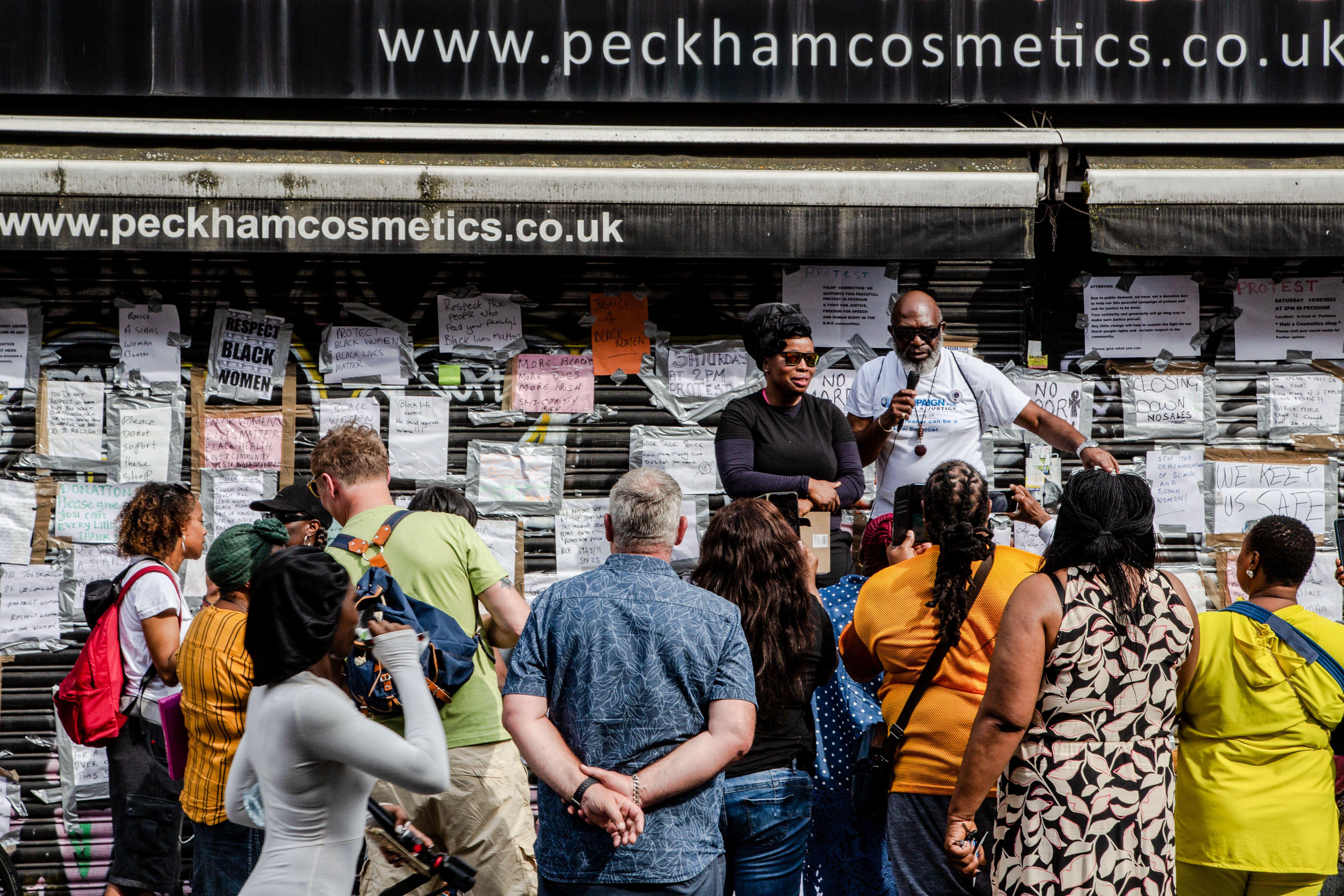
There are the childhood taunts – “tree head” was a particularly descriptive take on the threaded Bantu-style knots my mum would do on a Sunday night. I cheered for 15-year-old Jade Williams when she took her hair battles with Urswick Catholic School in east London all the way to court. The school’s uniform policy banned “voluminous Afro hairstyles” – a rule that meant that Jade spent two years being sent home or barred on a regular basis simply for wearing her hair in its natural style. After the Equality and Human Rights Commission (EHRC) helped her family take the school to court for discrimination, the EHRC issued nationwide guidance for schools.
All of these stories share the uncomfortable truth at the root of so many issues around Black women’s hair. Wrapped around the curls, coils, kinks, twists, naps, weaves, plaits, locs and lace fronts, is a narrative that our natural hair is unruly, unprofessional and unattractive. It chips away at our self-worth and signals to the rest of society that our hair is indicative of our nature – problematic and in need of correction.
It’s no coincidence that Sixties civil rights activists like Angela Y Davis and Kathleen Cleaver equated Afro pride with cultural consciousness and liberation. The “Naturalistas” leading today’s natural hair movement have worked hard to undo the internalised stigma attached to classifying our curls. Blogs and YouTube tutorials offer “curly girls” a shortcut to inspiration. Knowing the correlation between representation and self-worth, they have created an alternative narrative to the idea of what is traditionally deemed attractive or desired.
“Beauty is,” as Jamelia Donaldson points out, “the conversation starter. When exploring careers, relationships and their own self-image, I want women and girls to have an array of relatable examples that demonstrate just how much life has to offer – especially when living it on their own terms.”
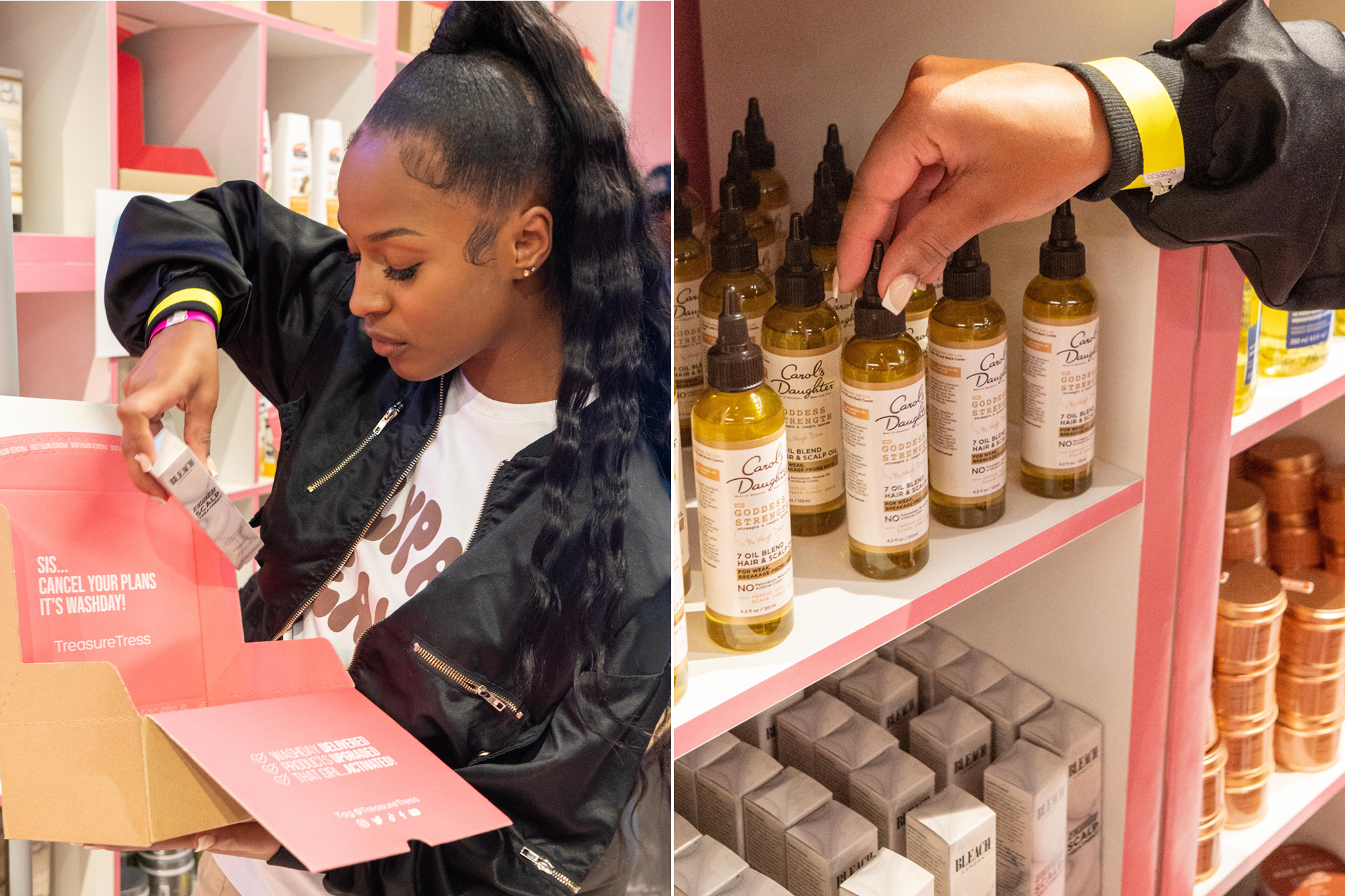
In response to the real-life impact of hair bias, organisers of the annual World Afro Day (15 September), used this year’s event to launch The Workplace Hair Movement. Its aim, founder and CEO Michelle De Leon explains, is to tackle hair discrimination at work by improving employers’ understanding of the issue. Necessary when you consider that figures from the Employer Hair Attitudes Survey reveal 84 per cent think straight hair on a woman is appropriate in all circumstances, against 64 per cent for braids with buns; when a Black woman straightens her hair, it increases her chance of being seen as “appropriate” by 20 per cent.
It’s the presence of this kind of bias that unconsciously, or otherwise, leads to the microaggressions often talked about in DE&I training. A subtle shift towards exclusion often goes unseen by the “in” crowd but is keenly felt by the person on the receiving end.
One positive result that has come from the Peckham Hair and Cosmetics store incident has been that The Trading Standards Authority has announced an investigation into the legality of the blanket “no refunds” policy that is common in shops operating in predominantly Black areas. The campaign to boycott stores that don’t treat Black customers with respect, however, signals an impatience with the speed of change.
“I’m really interested to see what happens next,” says Jamelia. “The social media outrage is great but we really need to change the way that we shop beauty and who we buy our products from. And the internet is a great equaliser.”
This is the kind of call to action that inspired UK music artist Swiss to start Black Pound Day. Launched in 2020, in the wake of George Floyd’s murder, the movement answers the questions about power, privilege, the organisations our money finances and how we can have more agency over who we support. On the first Saturday of every month, Black Pound Day encourages all consumers to support Black-owned businesses in the UK and Europe. It is an effective step towards a more equitable marketplace with the directory of Black-owned businesses it curates currently listing over 1,500 entries, with over £100,000 receipts logged.
“Conscious buying is the way forward,” says Jamelia. “Change is here – this is the beauty retail revolution!”
Follow Jamelia @jameliaisobsessed @TreasureTress: TreasureTress Launderette is at L12, Floor 2, Bullring, Link Street, Birmingham until November 15; for the full range of TreasureTress haircare boxes at TreasureTress.co.uk
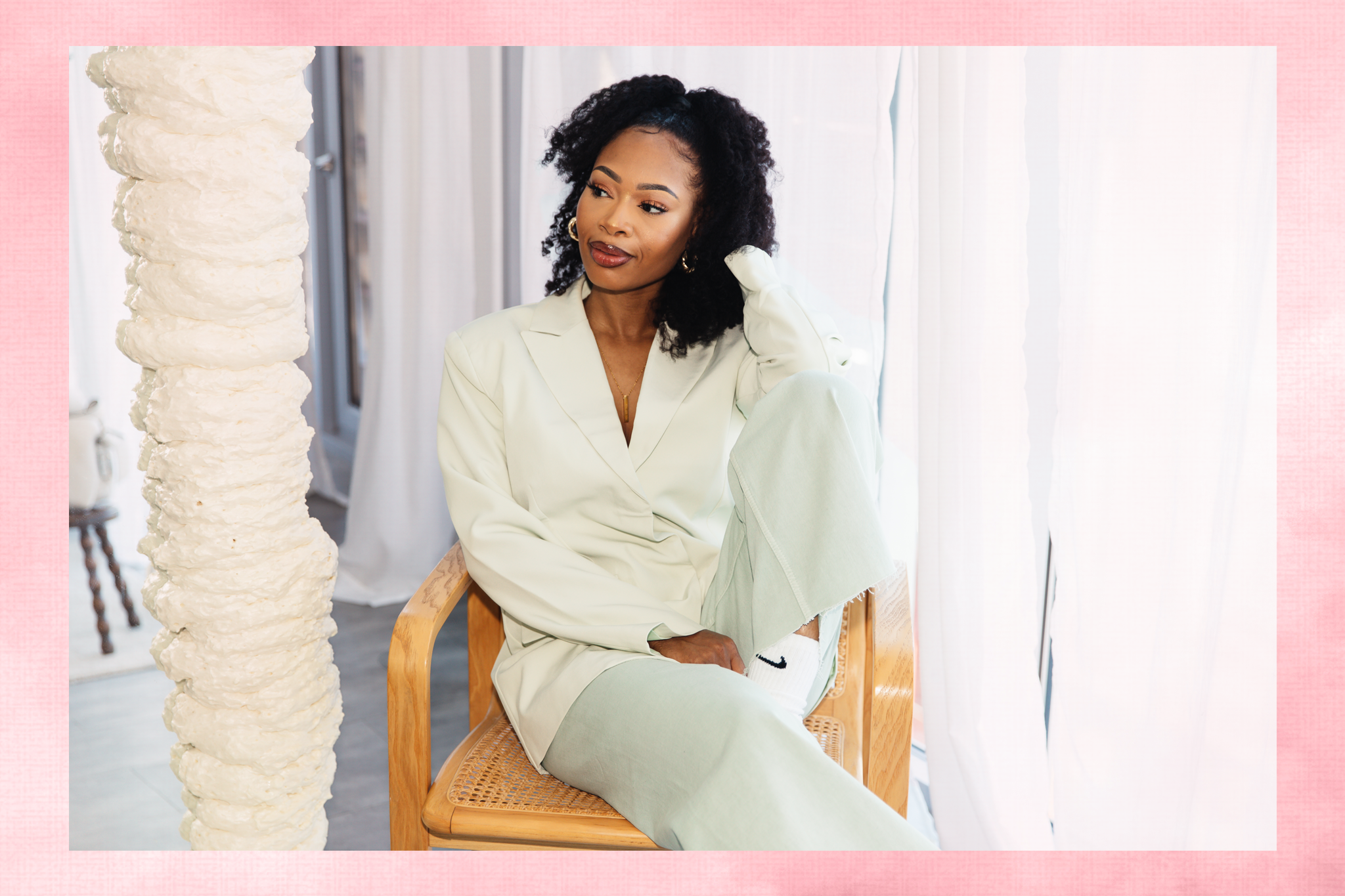
Jamelia Donaldson’s beauty revolution manifesto
#1 Society needs to re-think how it defines beauty It needs to be clear there is no cookie cutter or equation for beauty.
#2 Conscious consumerism is the way forward Movements like Black Pound Day are excellent. We should be mindful of how and where we spend our hard-earned money, especially in this economy.
#3 Centre your customers At TreasureTress, we’re intentional about everything: models, lighting, make-up, hair, store layout, product range, the language used to describe textured hair. It’s important that the space we create reflects the fact that TreasureTress is a brand that thrives and celebrates Black beauty. It’s about luxury and joy.
#4 Leverage the power of online while building connections offline People describe TreasureTress as a sisterhood and we like to play into that with our pop-ups. After Peckham, we did Home of TreasureTress in Shoreditch and created a home in an art gallery. Each room was allocated to a different brand so that the women could come and experience the brands physically.
#5 Shop differently and lean into inconvenience Culturally, we need to catch up when it comes to beauty e-commerce. We need to step away from the convenience of shops that are on our doorstep because at this point, it’s actually physically impacting us.
#6 Amplify the good Stand behind the brands that work for you, the brands that you’re proud of. If you are shy about showing your face on social media – that’s fine, just take a picture of the product. User-generated content is still the strongest marketing strategy.
#7 Call out the bad Leaving positive reviews for businesses that treat you well and leaving negative reviews for businesses that don’t is another way that we can vote.
#8 Remember Black people are not a monolith For so long a lot of the research and campaigns for the African-American market were copied and pasted to the UK. There are key differences between the two regions. We once featured a brand that was heavily praised in the States for its smell, but in our feedback from UK customers, they were saying it smelled awful!
#9 Be thankful for the next generation Young women today are rebellious, in the right way. Working on The Teen Experience showed me we’re in really good hands. They know what they’re willing to accept and what they’re not. They have created their own standard of beauty.
#10 Normalise Black beauty A key part of normalising Black natural hair is the availability of products. If you’re not being catered to it’s because you are not a priority – the availability of products reflects who is the priority and therefore who is deemed beautiful and who is not.






Join our commenting forum
Join thought-provoking conversations, follow other Independent readers and see their replies
Comments